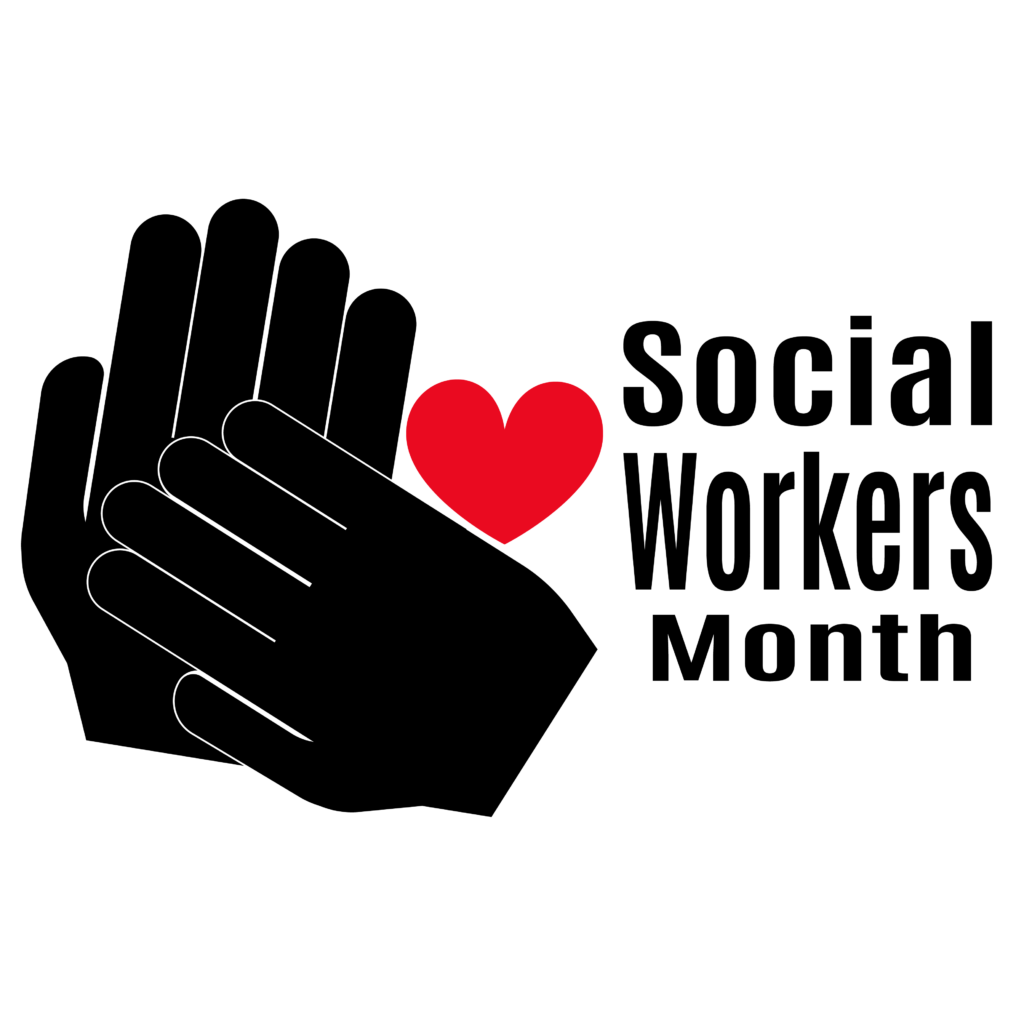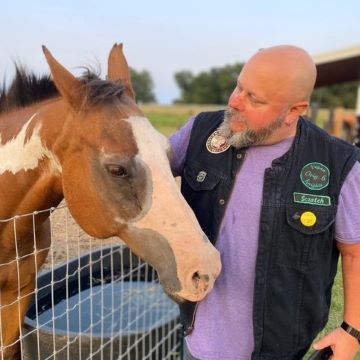
“Social Work Month is a time to celebrate the social work profession,” says Tina Kilton, ACT clinical supervisor and a social worker. “It promotes the work we do all year long.”
“Tina exemplifies what’s so powerful about social work,” says Rich Roell, who has a Master’s in social work and is Program Director for LifeWorks NW’s Washington County Crisis Team. “She sees how a client is influenced by their environment and responds by advocating with community partners and other supports to help the client meet their goals. Social work views every person as a part of a wider community which can either grow or inhibit their health and wellbeing. Every day, the question for us as social workers is how we can influence those systems for the good.”
“I really like the National Social Work Month theme this year, which is ‘social work breaks the barriers,’” says Tina. “There are a lot of barriers that we are up against daily: housing instability, criminal records, system barriers, language barriers, and many more.”
For example, Tina says getting an ID is a huge challenge if you don’t have the right documents. Clients need IDs for getting into housing or motels and cashing checks to meet their basic needs.
“Barriers exist and clients need help navigating them,” says Tina. “We get to help break down those barriers. Seeing clients overcome them makes this work valuable.”
Tina says you really don’t learn how to deal with all of these issues and barriers in school; it is on the job training.
“In school, I had no interest in doing system work, but I’ve learned that you can’t do this job well unless you get involved with both clients and the system, because they interact so often,” says Tina.
Social workers learn to work with the systems in order to help clients get the care they need on a daily basis.
“I think our licensed clinical social workers bring a really important perspective to our services and to our agencies,” says Mark Lewinsohn, Vice President of LifeWorks NW’s Clinical Services. “Their training is traditionally focused on helping people connect to resources, so they bring a different perspective, different skills and a knowledge base that really helps round out our services.”
“There is room for growth in the system, and trying to make that small difference is what social workers do every day for clients,” says Tina. “Making sure they have their needs met, and talking to whoever you need to make the difference. We may be talking to the Oregon Health Authority, CareOregon or other community partners that can help.
“I take pride in being in a profession that is made for people who want to help others and uses a wide skill set. I read that the field of social work is one of fastest growing professions in mental health. I think it is because it is so diverse. The options are limitless. There are social workers in libraries now, it’s just unbelievable.”
While Tina is the only social worker in her program, the ACT team, when she did her internship at Hawthorn, LifeWorks NW’s crisis center, she was surrounded by social workers. Now, many of the partner programs she works with have social workers.
“It’s nice to be around other social workers, because we do so many of the same things,” she says. “It’s nice to see the different skills used – like short-term counseling, crisis work, coordination of care with systems and community partners.”
According to Tina, one of the advantages of working at LifeWorks NW is that you can get licensure supervision.
“I’m grateful for Rich Roell, because he’s a licensed social worker and is providing my supervision for licensure,” says Tina. “I get to learn from an experienced supervisor, who helps shape my professional development.”
“I like being able to engage with other social workers because there is such a variety of skill sets out there and you can rely on one another for resources. I also keep in contact with many of my classmates, and they are so many different areas of social work they are in such as school, hospitals, clinics and many more. It’s an incredibly diverse field and one that gives you a great deal of opportunity to grow, learn and help others.”
“I’m so very proud of Tina and the many other social workers at LifeWorks NW,” says Rich. “Social work is aspirational. After all, we’re here to change the world so that every person can live their best life! One day at a time, one client at a time, our social workers are making that a reality.”










